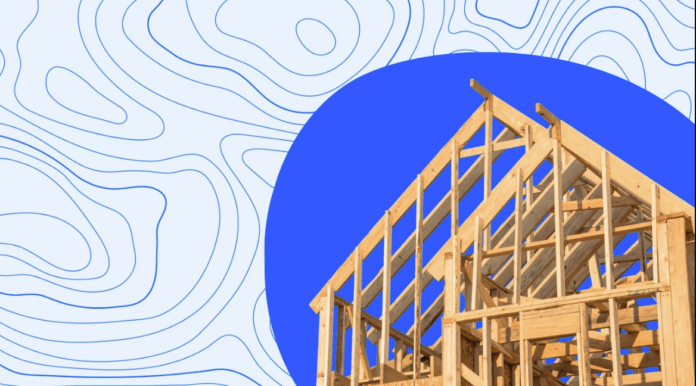If you’re planning to build your dream home or undertake a major construction project, financing is a crucial aspect to consider. Construction loans provide the necessary funds to cover the expenses of construction. However, before diving into the world of construction loans, it’s essential to understand the rates involved. In this article, we will explore construction loan rates in detail, including factors that influence them, types of rates available, and tips to secure the best rates for your project.
Understanding Construction Loan Rates
Construction loan rates refer to the interest rates charged on loans specifically designed for construction projects. These rates are typically higher than traditional mortgage rates due to the higher risks associated with construction projects. When you take out a construction loan, you’ll be required to make interest payments during the construction phase, and once the project is complete, the loan will transition into a traditional mortgage.
Factors Influencing Construction Loan Rates
Several factors influence loan rates. Understanding these factors will help you assess the potential interest rates you may encounter:
- Project Complexity and Size: Larger and more complex projects tend to have higher interest rates since they involve greater risks for lenders. Projects with unique designs, intricate engineering, or challenging locations can increase the perceived risk for lenders, resulting in higher rates.
- Loan Amount and Loan-to-Value (LTV) Ratio: The loan amount and LTV ratio also affect the interest rates. Higher loan amounts and higher LTV ratios may result in higher interest rates. Lenders consider a higher LTV ratio as a riskier investment, thus increasing the interest rate to compensate for the potential risk.
- Down Payment: Making a larger down payment can potentially lead to lower interest rates. A substantial down payment demonstrates your commitment to the project and reduces the risk for lenders.
Fixed Rate vs. Adjustable Rate Construction Loans
When considering construction loans, you’ll encounter two main types of interest rates:
Fixed Rate Construction Loans
Fixed rate construction loans offer stability and predictability. With this type of loan, the interest rate remains the same throughout the loan term. This means your monthly payments will remain constant, allowing for easier budgeting.
Adjustable Construction Loans
Adjustable rate construction loans, also known as variable rate loans, have interest rates that can fluctuate over time. The initial interest rate is typically lower than that of a fixed rate loan, but it may change periodically based on market conditions.
Obtaining the Best Construction Loan Rates
Securing the best construction loan requires careful consideration and proactive steps. Here are some tips to help you obtain favorable rates for your construction project:
- Compare rates and loan terms from multiple lenders to ensure you’re getting the best deal.
- Improve Credit Score: Your credit score plays a significant role in determining the interest rate you qualify for.A higher credit score increases your chances of securing lower interest rates. Pay off existing debts, make timely payments, and maintain a good credit history to improve your credit score.
- Optimize Loan-to-Value Ratio: Aim for a lower loan-to-value (LTV) ratio by saving for a larger down payment. Lenders often offer better rates for borrowers with lower LTV ratios, as it reduces their risk exposure.
Preparing for a Construction Loan Application
Before applying for a construction loan, it’s important to be well-prepared. Taking the following steps will increase your chances of approval and improve your negotiation power for better rates:
- Develop a Detailed Construction Plan: Create a comprehensive plan outlining the project’s scope, budget, and timeline. Include detailed architectural drawings, engineering plans, and a breakdown of the materials and labor required. A well-structured plan demonstrates your preparedness and commitment to the project.
- Assemble a Qualified Team: Engage professionals like architects, contractors, and engineers who have experience in construction loan projects. Their expertise will contribute to the credibility of your project and increase lenders’ confidence in its success.
By following these steps and preparing a strong loan application, you’ll increase your chances of obtaining favorable loan rates. Read more…
Conclusion
Construction loan rates play a significant role in determining the cost of your construction project. Understanding the factors that influence these rates, exploring different types of rates available, and taking proactive steps to secure the best rates will help you make informed decisions and save money in the long run. Remember to research multiple lenders, improve your credit score, optimize your loan-to-value ratio, and present a comprehensive loan application.
FAQs (Frequently Asked Questions)
- What are construction rates? Construction rates refer to the interest rates charged on loans specifically designed for construction projects. These rates are typically higher than traditional mortgage rates due to the higher risks associated with construction projects.
- What factors influence construction loan? Several factors influence construction rates, including the complexity and size of the project, loan amount and loan-to-value ratio, down payment, builder’s track record, and economic conditions.
- What are fixed rate construction loans? Fixed rate construction loans have a stable interest rate throughout the loan term, providing predictable monthly payments. These loans are ideal for those seeking stability and protection against potential rate hikes.
- What are adjustable rate construction loans? Adjustable rate construction loans have interest rates that can fluctuate over time. The initial ratemay be lower than that of a fixed rate loan, but it can change periodically based on market conditions. Adjustable rate loans are suitable if you expect interest rates to decrease or if you plan to refinance the loan once the construction phase is complete.

